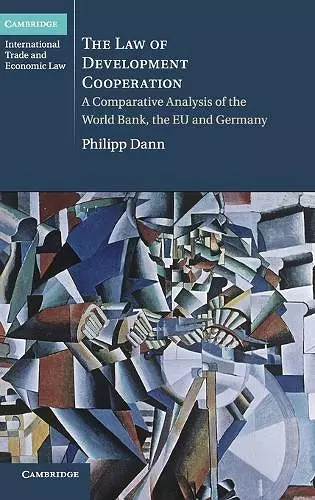The Law of Development Cooperation
A Comparative Analysis of the World Bank, the EU and Germany
Philipp Dann author Andrew Hammel translator
Format:Hardback
Publisher:Cambridge University Press
Published:7th Nov '13
Currently unavailable, and unfortunately no date known when it will be back

This comparative study of rules governing development assistance asks how accountability, human rights and sovereignty are preserved while combating poverty.
This comparative study on the laws of foreign aid as a central field of global public policy asks how accountability and human rights can be preserved while combating poverty. Placing the law in its theoretical and political context, it is relevant to lawyers and political scientists, academics and practitioners alike.Development interventions are agreed by states and international organisations which administer public development funds of huge proportions. They have done so with debatable success, but, unlike the good governance of recipients, the rules applying to donors have hitherto received little scrutiny. This analysis of the normative structures and conceptual riddles of development co-operation argues that development co-operation is increasingly structured by legal rules and is therefore no longer merely a matter of politics, economics or ethics. By focusing on the rules of development co-operation, it puts forward a new perspective on the institutional law dealing with the process, instruments and organisation of this co-operation. Placing the law in its theoretical and political context, it provides the first comparative study on the laws of foreign aid as a central field of global public policy and asks how accountability, autonomy and human rights can be preserved while combating poverty.
'The Law of Development Cooperation can justly be celebrated as the 'state of art' of legal reasoning. Every single page of the book is stimulating and full of insights valuable to both development practitioners and legal scholars alike. On the conceptual level, the construction of a multi-layered legal field of development cooperation from an institutional perspective that focuses on the legal norms of donors seems highly plausible. It presents academics with a rich yet workable area for further research.' Giedre Jokubauskaite, European Journal of International Law
ISBN: 9781107020290
Dimensions: 235mm x 155mm x 35mm
Weight: 970g
604 pages